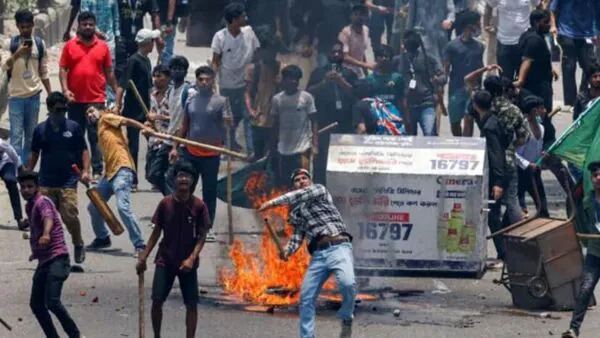Job Quota Chaos: Is Bangladesh’s System Sustainable?
In Bangladesh, job quotas have been a contentious and evolving topic, especially in the context of government jobs. The quota system in Bangladesh reserves a certain percentage of government jobs for various groups, including disadvantaged communities, ethnic minorities, and freedom fighters’ descendants. Over the years, this system has been both praised for promoting social equity and criticized for perpetuating inefficiency and favoritism. Here’s a detailed analysis of the current situation and recent developments regarding job quotas in Bangladesh:
Background of the Job Quota System
- Historical Context:
- The quota system in Bangladesh originated to ensure representation and opportunities for marginalized groups who historically faced discrimination. It was intended to promote inclusivity and social justice, particularly after the country’s independence in 1971.
- Quota Allocation:
- Currently, the job quota system allocates 56% of government jobs as follows:
- 30% for freedom fighters’ descendants
- 10% for women
- 10% for district quotas (based on population)
- 5% for ethnic minorities
- 1% for people with disabilities
- Currently, the job quota system allocates 56% of government jobs as follows:
Recent Developments and Controversies
- Student Protests in 2018:
- In 2018, widespread student protests erupted across Bangladesh, primarily led by university students, demanding reform of the quota system. The protesters argued that the quota system perpetuated nepotism, corruption, and inefficiency and hindered merit-based recruitment.
- Government Response:
- The government initially promised to review and reform the quota system in response to the protests. However, slow progress led to continued discontent among protesters and opposition parties, who called for its outright abolition.
- High Court Directive (2021):
- In January 2021, the High Court of Bangladesh declared the quota system illegal and unconstitutional, directing the government to abolish it within 90 days. The court cited the principle of equality and merit-based recruitment as reasons for its decision.
- Government Appeal and Inaction:
- The government appealed against the High Court verdict, leading to a stay order on its implementation. This move sparked criticism from activists and students who accused the government of delaying the reform process and disregarding the court’s directive.
- Current Status and Political Debate:
- The quota system remains in place, albeit with ongoing calls for reform or abolition from various stakeholders. The issue has become a political hot potato, with opposition parties criticizing the ruling government for not fulfilling promises of reform and maintaining a system perceived as hindering efficiency and transparency in government recruitment.
Public Opinion and Stakeholder Positions
- Students and Youth Activists:
- University students and youth activists continue to advocate for the abolition of the quota system. They argue that it hampers meritocracy and perpetuates unemployment among qualified candidates.
- Government Supporters:
- Supporters of the quota system say ensuring representation and opportunities for historically marginalized groups is essential. They believe that any reform should aim to balance equity with recruitment efficiency.
- Opposition Parties:
- Opposition parties have capitalized on public discontent over the quota issue, criticizing the government for handling the matter and promising to address it differently if elected.
- Legal and Constitutional Experts:
- Legal experts have weighed in on both sides, with some supporting the High Court’s decision on the grounds of constitutional principles. In contrast, others highlight the need for a balanced approach considering merit and equity.
Future Prospects
The future of the job quota system in Bangladesh is shrouded in uncertainty and political tension. Calls for reform or abolition from various quarters, including the judiciary and student activists, have created a sense of urgency. However, the government’s stance and actions will significantly influence the course of this debate. The need for a balanced and decisive solution is more pressing than ever. Ultimately, finding a solution that balances merit-based recruitment with the need for social equity will be crucial for addressing the longstanding issues surrounding the job quota system in Bangladesh.

